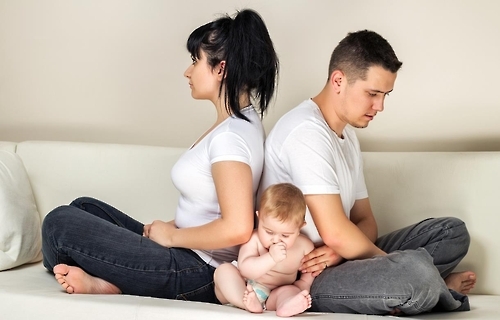Understanding Postpartum Depression: Signs, Causes, and Solutions
Understanding Postpartum Depression: Signs, Causes, and Solutions
Introduction
Postpartum depression (PPD) affects millions of new mothers worldwide, often overshadowing what should be a joyous time. It’s more than just the "baby blues" and can significantly impact a mother’s emotional well-being and her ability to care for her newborn. In this blog, we’ll explore the signs, causes, and solutions for postpartum depression to help mothers and their families navigate this challenging condition.
1. What Is Postpartum Depression?
Postpartum depression is a type of depression that occurs after childbirth, typically within the first few weeks but sometimes up to a year later. It goes beyond the normal mood swings or "baby blues" experienced by many new mothers.
- Prevalence: About 10–20% of mothers experience postpartum depression.
- Duration: Without treatment, PPD can last for months or longer, affecting both the mother and the family dynamic.
2. Signs and Symptoms of Postpartum Depression
Recognizing the symptoms of PPD is crucial for early intervention. Common signs include:
-
Emotional Symptoms:
- Persistent sadness, hopelessness, or feelings of emptiness.
- Intense guilt or worthlessness.
- Mood swings or frequent crying spells.
-
Physical Symptoms:
- Fatigue or loss of energy.
- Changes in appetite or sleep patterns (e.g., insomnia or oversleeping).
- Unexplained physical aches or pains.
-
Behavioral Symptoms:
- Difficulty bonding with the baby.
- Withdrawal from family and friends.
- Trouble concentrating or making decisions.
-
Severe Symptoms:
- Thoughts of self-harm or harming the baby (in extreme cases, postpartum psychosis may occur).
3. Causes of Postpartum Depression
The exact cause of postpartum depression is not fully understood, but it is believed to result from a combination of factors:
-
Hormonal Changes:
- A dramatic drop in estrogen and progesterone levels after childbirth can affect mood.
-
Physical Changes:
- Recovery from childbirth, physical pain, and exhaustion can contribute to emotional distress.
-
Emotional Factors:
- Anxiety about parenting, lack of sleep, or feeling overwhelmed with responsibilities.
-
Social and Environmental Factors:
- Lack of support from a partner, family, or community.
- Financial stress or life changes.
-
Personal History:
- A history of depression, anxiety, or mental health issues increases the risk of PPD.
4. Solutions and Treatment for Postpartum Depression
Postpartum depression is treatable with the right approach. Mothers experiencing PPD should not hesitate to seek help.
-
Professional Help:
- Therapy: Cognitive-behavioral therapy (CBT) or counseling can help manage negative thoughts and emotions.
- Medication: Antidepressants prescribed by a healthcare professional can alleviate symptoms.
-
Support Systems:
- Family and Friends: Leaning on loved ones for emotional and practical support can make a significant difference.
- Support Groups: Joining a group of mothers experiencing similar challenges can provide validation and coping strategies.
-
Self-Care:
- Prioritize rest and sleep whenever possible.
- Engage in light physical activity, such as walking, to boost endorphins.
- Eat a balanced diet to support physical and mental health.
-
Practical Tips:
- Don’t hesitate to ask for help with childcare or household tasks.
- Set realistic expectations and avoid putting pressure on yourself to be a "perfect" parent.
- Spend time connecting with your baby through skin-to-skin contact or gentle play.
5. How to Prevent Postpartum Depression
While PPD cannot always be prevented, certain steps can reduce the risk:
-
Plan Ahead:
- Arrange for a strong support network before the baby’s arrival.
- Discuss postpartum expectations with your partner or family.
-
Open Communication:
- Talk about your feelings regularly with someone you trust.
- Seek professional help early if you notice symptoms of anxiety or depression during pregnancy.
-
Educate Yourself:
- Learn about PPD to recognize early warning signs and understand available resources.
6. When to Seek Immediate Help
If you or someone you know experiences severe symptoms, such as thoughts of self-harm or harming the baby, seek immediate medical attention. Postpartum depression can escalate without intervention, so acting early is essential.
- Emergency Support: Contact a healthcare provider or helpline in your area for urgent help.
- Crisis Hotlines: In the U.S., call the National Suicide Prevention Lifeline at 1-800-273-TALK (8255). In South Korea, call 1393 or 1577-0199.
Conclusion
Postpartum depression is a serious but treatable condition that affects many mothers. By recognizing the signs, understanding the causes, and seeking the right support, mothers can regain their emotional well-being and build a positive bond with their baby. Remember, seeking help is a sign of strength, not weakness.
Call to Action
Are you or someone you know struggling with postpartum depression? Share your story in the comments below, or reach out for support. Follow this blog for more insights on maternal health and parenting tips.






Comments